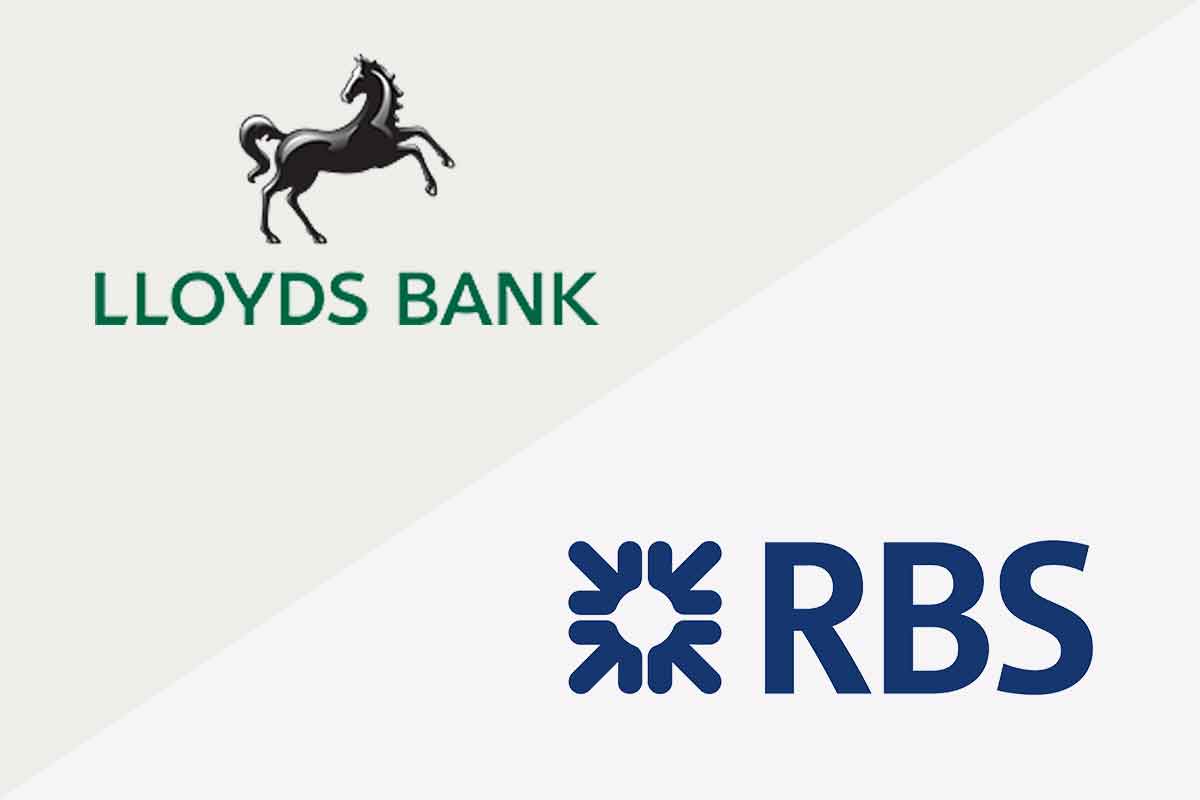When it comes to choosing a bank for your business, two prominent names often stand out in the United Kingdom: Lloyds Bank and the Royal Bank of Scotland (RBS). Both banks have a long history and offer a range of services tailored to businesses.
In this article, we will compare Lloyds vs RBS to help you make an informed decision about your business banking needs.
Featured pro tools
Lloyds vs RBS
| Features | Lloyds Bank | RBS |
|---|---|---|
| Branch Network | Extensive branch network across the UK | Smaller branch network |
| Online and Mobile Banking | Robust online and mobile banking platform | Strong digital banking infrastructure |
| Expertise and Support | Sector-specific expertise and support | Tailored advice and business support |
| International Capabilities | Limited international support | Global presence and expertise |
| Relationship Management | Dedicated relationship managers for business | Blend of relationship management and tech |
| Fees and Pricing | Fee structure may be less competitive | Transparent pricing structure |
| Business Size Focus | Serves businesses of all sizes | Strong focus on supporting SMEs |
| Additional Services | Wide range of business products and services | Networking events and business mentoring |
| Interest Rates | May vary; competitive rates for some products | Relatively lower interest rates |
Note: The information provided in this table is based on general knowledge and may be subject to change. It’s advisable to consult with the respective banks and review their current offerings for the most up-to-date and accurate information.
Statistics
- Lloyds Bank:
- As of 2021, Lloyds Bank had approximately 9 million active digital banking customers in the UK, demonstrating the bank’s strong digital presence and adoption of online banking services.
- Lloyds Bank has over 1,800 branches across the UK, making it one of the largest branch networks in the country. This extensive network offers businesses convenient access to in-person banking services and support.
- In 2020, Lloyds Bank provided over £9 billion in lending support to small businesses affected by the COVID-19 pandemic through government-backed schemes such as the Bounce Back Loan Scheme (BBLS) and the Coronavirus Business Interruption Loan Scheme (CBILS).
- RBS:
- RBS serves over 1 million business customers in the UK, catering to a diverse range of industries and business sizes. The bank has a strong focus on supporting small and medium-sized enterprises (SMEs) and providing tailored advice and resources to help them thrive.
- RBS has invested significantly in digital banking capabilities, with approximately 7 million active mobile banking users as of 2021. This highlights the bank’s commitment to offering user-friendly digital solutions for business customers.
- In recent years, RBS has been recognised for its commitment to sustainability and responsible banking. It aims to support and finance businesses that align with environmental and social sustainability goals, emphasising its dedication to corporate social responsibility.
Pros of Lloyds Bank
Lloyds Bank has a strong reputation and an extensive branch network across the UK, making it easily accessible for business owners. Here are some key advantages of choosing Lloyds Bank:
- Experience and expertise: Lloyds has a deep understanding of the UK business landscape and has been serving businesses for many years. They offer specialized services, including sector-specific expertise, which can be valuable for businesses operating in niche markets.
- Online and mobile banking: Lloyds provides a robust online and mobile banking platform, offering convenient access to your business accounts, transactions, and financial tools anytime, anywhere.
- Range of products and services: Lloyds offers a comprehensive suite of business banking products, including business accounts, lending solutions, cash management tools, and merchant services. They cater to businesses of all sizes, from startups to large enterprises.
Cons of Lloyds Bank
While Lloyds Bank offers numerous benefits, it’s essential to consider the potential drawbacks before making a decision:
 |
Wallester Business ✓ Virtual & Physical Cards ✓ No Setup Fees ✓ No Monthly Fees Pricing Trial period Contact |
|
 |
Revolut Business ✓ Business Current Account ✓ Award-Winning Mobile App ✓ Quick & Easy Application Process Pricing Trial period Contact |
|
 |
Tide Business Bank Accounts ✓ Free, Plus, or Pro Account ✓ iOS & Android Mobile App ✓ Upload & Auto-Match Receipts Pricing Trial period Contact |
|
 |
Card One Money ✓ No Credit Checks ✓ Simple Fees ✓ Up to 3.5% Cashback Pricing Trial period Contact |
|
 |
ANNA Money ✓ Apply in 10 minutes ✓ Bookkeeping & Payroll Tools ✓ User-Friendly Mobile App Pricing Trial period Contact |
|
 |
Co-Op Business Banking ✓ Business Current Account ✓ Online, App & High Street Banking ✓ Quick & Easy Application Process Pricing Trial period Contact |
|
 |
HSBC Business Banking ✓ Business Current Account ✓ In-Branch, Online & App Banking ✓ FSCS Protected Pricing Trial period Contact |
|
 |
Metro Business Banking ✓ Business Current Account ✓ High Street Presence ✓ FSCS Protected Pricing Trial period Contact |
|
 |
Mettle Business Banking ✓ Business Bank Account ✓ Online & App ✓ Quick & Easy Application Process Pricing Trial period Contact |
|
 |
Monzo Business Banking ✓ Business Current Account ✓ Dedicated mobile app experience ✓ FSCS Protected Pricing Trial period Contact |
|
 |
Virgin Money ✓ Business M Account ✓ In-Store, Online & App Banking ✓ Insights & Forecasting Platform Pricing Trial period Contact |
- Fee structure: Lloyds Bank’s fee structure may not be as competitive as some other banks, particularly for certain services such as international payments or foreign currency transactions. It’s crucial to review the fee schedule and assess how it aligns with your business’s needs.
- Limited branch opening hours: Although Lloyds has an extensive branch network, some branches may have limited opening hours, which could pose challenges for businesses requiring in-person banking services.
Pros of RBS
RBS, as a major player in the UK banking sector, also offers notable advantages for business banking customers:
- Wide range of business support: RBS provides extensive business support, including tailored advice, networking events, and access to business mentors. These resources can be beneficial for entrepreneurs and businesses seeking guidance to grow and thrive.
- Strong digital offering: RBS has invested in its digital banking infrastructure, offering a user-friendly online and mobile banking experience. Their digital tools and resources can help streamline your business’s financial management.
- International capabilities: RBS has a global presence, with a dedicated team to support businesses with international ambitions. If your business engages in international trade or has expansion plans abroad, RBS’s expertise in this area could be advantageous.
Cons of RBS
While RBS has its strengths, it’s important to consider the potential drawbacks:
- Limited branch network: Compared to Lloyds, RBS has a smaller branch network, which may limit physical access to banking services for some businesses. However, they provide alternative channels for support and assistance.
- Relatively lower interest rates: RBS’s interest rates on business savings accounts and other deposit products may be less competitive compared to some other banks. It’s essential to assess your business’s cash management needs and weigh the potential impact.
Lloyds vs RBS – Key Differences and other considerations
In addition to the pros and cons mentioned above, there are a few other factors to consider when choosing between Lloyds vs RBS:
Relationship management
Lloyds Bank prides itself on relationship-based banking, assigning dedicated relationship managers to business customers. RBS, on the other hand, focuses on a blend of relationship management and digital support. Consider your preference for personalised attention versus a more technology-driven approach.
Business size and industry focus
Lloyds Bank caters to a wide range of businesses, while RBS has a strong emphasis on supporting small and medium-sized enterprises (SMEs). Additionally, Lloyds Bank offers sector-specific expertise for businesses operating in niche industries.
Reputation and trust
Both Lloyds Bank and RBS are well-established institutions with solid reputations. Consider factors such as customer reviews, brand perception, and trustworthiness when making your decision.
Costs and pricing
It’s essential to compare the costs associated with the specific services your business requires. Evaluate transaction fees, account maintenance charges, and any additional costs for specialised services.
Additional services
Beyond basic banking services, consider any additional offerings that may be relevant to your business. This could include trade finance, business insurance, foreign exchange services, or support for international trade.
Lloyds vs RBS – Verdict
In conclusion, choosing between Lloyds Bank and RBS for your business banking needs requires careful consideration of your specific requirements and preferences.
Lloyds Bank offers experience, an extensive branch network, and a range of services, while RBS provides strong digital offerings, business support, and international capabilities.
Remember to conduct thorough research, compare offerings, and consult with banking professionals before making your final choice.
Lloyds vs RBS – FAQ
Yes, both Lloyds Bank and RBS offer the option to open a business account online. You can visit their websites and follow the necessary steps to initiate the account opening process.
Yes, both banks offer a range of lending solutions for businesses, including business loans, overdrafts, and asset finance. It’s advisable to consult with their representatives to discuss your specific financing needs and eligibility criteria.
Both Lloyds Bank and RBS have transaction fees associated with certain services. It’s important to review their fee schedules and understand the costs related to activities such as domestic and international payments, cash deposits, and withdrawals.
Yes, both Lloyds Bank and RBS provide mobile banking apps that allow you to access and manage your business accounts on your mobile devices. You can check balances, make payments, view transactions, and utilize other banking features on the go.
While RBS has a dedicated team to support businesses with international ambitions, Lloyds Bank also offers services and expertise for businesses engaged in international trade. They can assist with foreign exchange services, trade finance, and other related solutions.
Both banks have certain limitations on the number of transactions and cash deposits allowed for specific types of business accounts. It’s recommended to review the terms and conditions of the chosen account to understand any restrictions that may apply.
Lloyds Bank and RBS prioritise the security of their customers’ accounts. They employ various security measures, including encryption, two-factor authentication, and advanced fraud detection systems, to safeguard business accounts from unauthorised access and fraudulent activities.
Please note that the answers provided in this FAQ are based on general information and may vary depending on specific account types, eligibility criteria, and terms and conditions. It’s advisable to contact Lloyds Bank or RBS directly or visit their official websites for the most accurate and up-to-date information regarding their business banking services.

